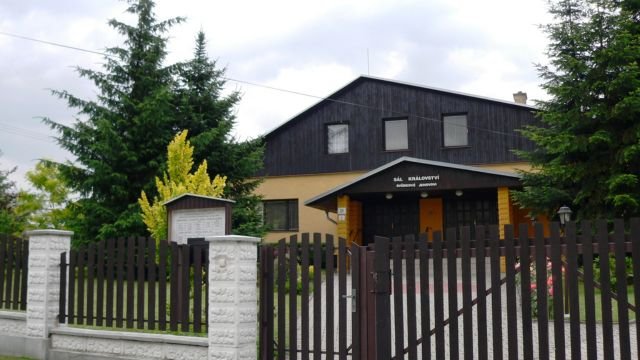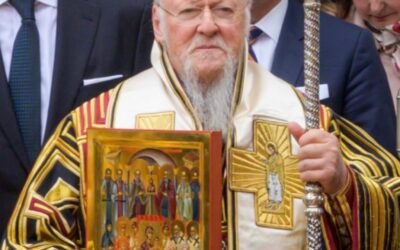The Czech anti-cult professor offered an incorrect representation of what consequences the dissolution of the Jehovah’s Witnesses would have in his country.
by Massimo Introvigne

On January 2, 2025, “Bitter Winter” commented on the paradoxical situation of the Czech Republic, a democratic country and a member state of the European Union that nonetheless threatens Jehovah’s Witnesses with “liquidation,” relying on arguments similar to those used in Russia, where the religious organization was “liquidated” in 2017.
Zdeněk Vojtíšek, a professor at Charles University in Prague who now devotes a substantial part of his time to supporting anti-cult campaigns, answered “Bitter Winter” with a series of articles. I will not consider here his comments on the Jehovah’s Witness practice of counseling members not to associate with ex-members (except cohabiting relatives) who have been expelled as guilty and unrepentant of serious sins or have publicly disassociated themselves from the organization. I and other scholars have devoted numerous articles to the issue, which do not need to be repeated here.
I will, however, answer three comments by Vojtíšek specific to the Czech situation, which I find both inaccurate and misleading.
The first is his claim that cancelling the registration of the Jehovah’s Witnesses in the Czech Republic, as the Ministry of Culture threatens to do, will not have very serious consequences. As I reported in “Bitter Winter,” under a Czech law ironically named “on religious freedom,” upon the de-registration of a church, “the church and all of its recorded church legal entities shall be liquidated” (article 24.2). Liquidators will be appointed and they “shall notify the Ministry [of Culture] of the conclusion of liquidation proceedings within five business days of said conclusion” (article 24.5). Unless the liquidated church had previously indicated another church to which the proceeds of the liquidation should be transferred, “the net proceeds shall accrue to the State, which shall use the net proceeds for the benefit of other registered churches” (article 24.6).
Vojtíšek objects that the Czech Jehovah’s Witnesses do not need to “panic.” He claims that, even if liquidated, they will be able to elude the effects of Article 24 by “transferring all property to another legal entity of their choice (most likely an association) in order to continue serving religious purposes.” If it were so, the provisions on liquidation of the Czech law would be a paper tiger, if not a joke. Even religious organizations guilty of serious crimes would be able to avoid the consequences of dissolution simply by setting up another legal entity and transferring their assets to it before dissolution.
We are told by Czech lawyers that it is not so, which also seems to correspond to logic and common sense. It is true that under the first part of article 24.6, the property of the deregistered and liquidated religious community may be “transferred to another registered church and religious society designated in its constituent document.” The problem is that the “constituent document” of the Czech Religious Society of the Jehovah’s Witnesses, registered with the Ministry, does not designate any other “church or religious society” to which the assets can be transferred in case of liquidation. The government has issued its cease and desist order to the national legal entity of Jehovah’s Witnesses, which means that in case of liquidation both it and all other legal entities of Jehovah’s Witnesses (i.e., their legal subdivisions) will be liquidated at the same time.
Accordingly, the first part of article 24.6 will not be applied to the Jehovah’s Witnesses. Instead, they will be dealt with according to the second part of article 24.6. All the places of worship and properties of Jehovah’s Witnesses will be sold by a “liquidator” and the “liquidation balance” will be transferred to the State, which will then use those funds to support other churches in the Czech Republic. It seems that, not being a legal expert, Vojtíšek misunderstood either the law or the structure of the Czech Jehovah’s Witnesses, or perhaps both.

Second, Vojtíšek criticized the “Bitter Winter” article by stating that “it is not right to argue about the situation of Witnesses in other countries of the world,” since the law being enforced “applies only in the Czech Republic. Whatever we think about Section 5 of this Act (and religionists usually do not think anything good about it), any administrative proceedings will be conducted according to this Act. We cannot imagine how foreign judgments could be relevant in these proceedings.”
Again, Vojtíšek shows here that he is not an expert of law. In fact, the states that have signed and ratified the European Convention on Human Rights (ECHR) and the First Optional Protocol to the International Covenant on Civil and Political Rights (ICCPR), as the Czech Republic did, acknowledge that in matters of human rights, including freedom of religion or belief, national laws can be unjust. These states, including the Czech Republic, voluntarily submitted to a higher control by supranational entities such as the European Court of Human Rights and the Human Rights Committee of the United Nations.
Article 18.3 of the ICCPR states that it is not sufficient that limitations to freedom of religion or belief are “prescribed by the law.” After all, even in totalitarian and non-democratic states limitations to human rights are “prescribed by the law.” These limitations should also be “necessary to protect public safety, order, health, or morals or the fundamental rights and freedoms of others.” Both the European Court of Human Rights (inter alia, by regarding as contrary to the ECHR the dissolution of Jehovah’s Witnesses in Russia in the 2022 case “Taganrog LRO and Others v. Russia”) and the Human Rights Committee (which recently found against Russia in a case where brochures of the Jehovah’s Witnesses teaching members not to associate with expelled or apostate ex-members had been banned) have interpreted this reference to “necessity” in a very narrow sense.
The Czech Republic is not a hermit state. It is part of an international community connected by treaties such as the ECHR and the ICCPR. Vojtíšek is wrong: “foreign judgements,” including those of these international bodies, are indeed very much “relevant” in the Czech proceedings.

Third, Vojtíšek is offended to the point of resorting to a gross language and personal attacks by any comparison between the threatened liquidation of the Jehovah’s Witnesses in the Czech Republic and their 2017 liquidation in Russia. We fully understand the political interest of both the Czech authorities and the Czech anti-cultists to avoid comparisons with their Russian counterparts. Certainly, “Bitter Winter” did not suggest that in general the political and legal system of the Czech Republic, not to mention its foreign policy, is similar to Russia. However, in the case of the treatment of the Jehovah’s Witnesses, the comparison is perfectly appropriate. As mentioned earlier, on a crucial point the liquidation in the Czech Republic will have the same substantial effects of the liquidation in Russia. The assets of the Jehovah’s Witnesses, including their places of worship, will be confiscated and sold by a liquidator. The proceedings will not be given back to the Jehovah’s Witnesses but will benefit others.
We would recommend to Vojtíšek and his friends to reflect on a famous comment by Italian Communist philosopher Antonio Gramsci: shooting the barometer would not eliminate the bad weather. If they want to avoid being compared to Russia, they should just stop behaving like the Russians with respect to the Jehovah’s Witnesses.

Massimo Introvigne (born June 14, 1955 in Rome) is an Italian sociologist of religions. He is the founder and managing director of the Center for Studies on New Religions (CESNUR), an international network of scholars who study new religious movements. Introvigne is the author of some 70 books and more than 100 articles in the field of sociology of religion. He was the main author of the Enciclopedia delle religioni in Italia (Encyclopedia of Religions in Italy). He is a member of the editorial board for the Interdisciplinary Journal of Research on Religion and of the executive board of University of California Press’ Nova Religio. From January 5 to December 31, 2011, he has served as the “Representative on combating racism, xenophobia and discrimination, with a special focus on discrimination against Christians and members of other religions” of the Organization for Security and Co-operation in Europe (OSCE). From 2012 to 2015 he served as chairperson of the Observatory of Religious Liberty, instituted by the Italian Ministry of Foreign Affairs in order to monitor problems of religious liberty on a worldwide scale.



